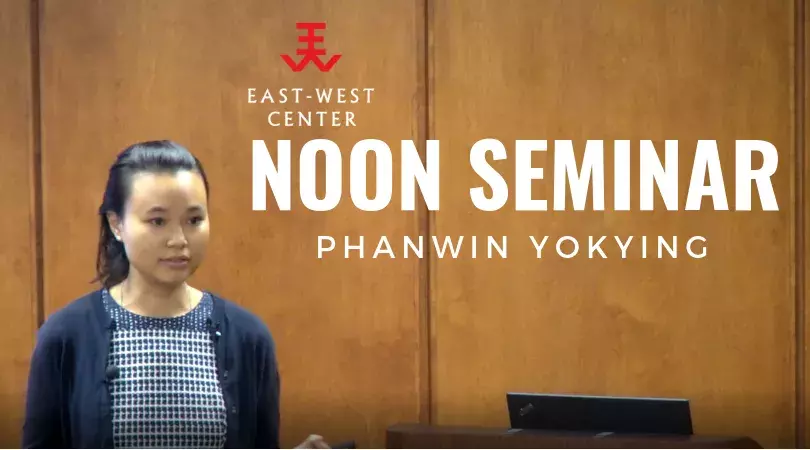Error message

Is children’s involvement in market and household work related to the labor force status of their mothers and fathers? Among children with employed parents, is there a relationship between parents’ sector of employment and the work performed by children? And how does poverty affect the relationship between parents’ informal employment and work performed by children? It is important to answer these questions if we are to understand how policies that aim to reduce poverty or stimulate economic growth by increasing the labor force participation of women and men might influence children’s work responsibilities, both in the market and at home. The empirical results show parents’ labor force status influences children’s participation in work. This presentation will discuss the positive correlations prevalent among low-income children living with mothers or fathers employed in the informal sector.
Video of Phanwin Yokying's presentation on 2/19/19 at East-West Center:

Is children’s involvement in market and household work related to the labor force status of their mothers and fathers? Among children with employed parents, is there a relationship between parents’ sector of employment and the work performed by children? And how does poverty affect the relationship between parents’ informal employment and work performed by children? It is important to answer these questions if we are to understand how policies that aim to reduce poverty or stimulate economic growth by increasing the labor force participation of women and men might influence children’s work responsibilities, both in the market and at home. The empirical results show parents’ labor force status influences children’s participation in work. This presentation will discuss the positive correlations prevalent among low-income children living with mothers or fathers employed in the informal sector.
Video of Phanwin Yokying's presentation on 2/19/19 at East-West Center:







